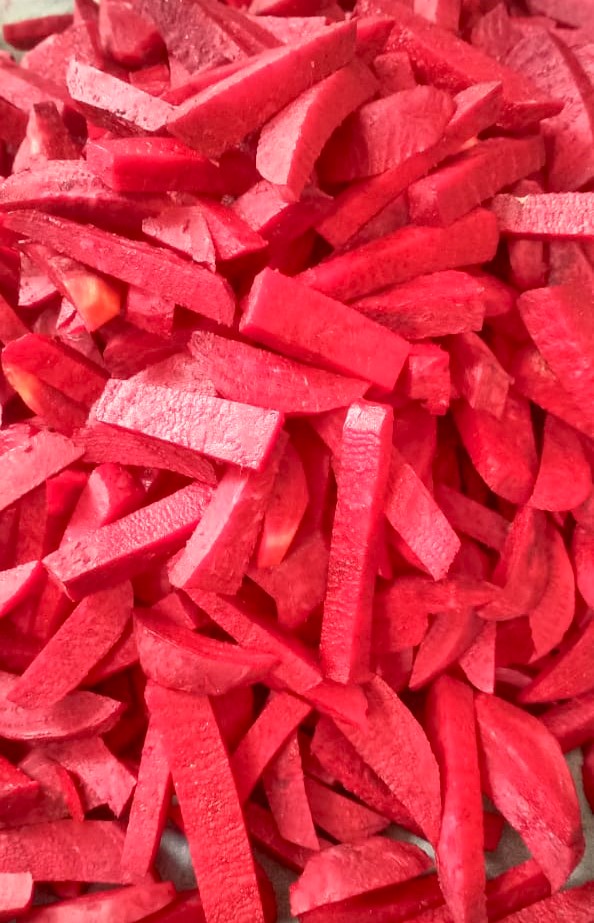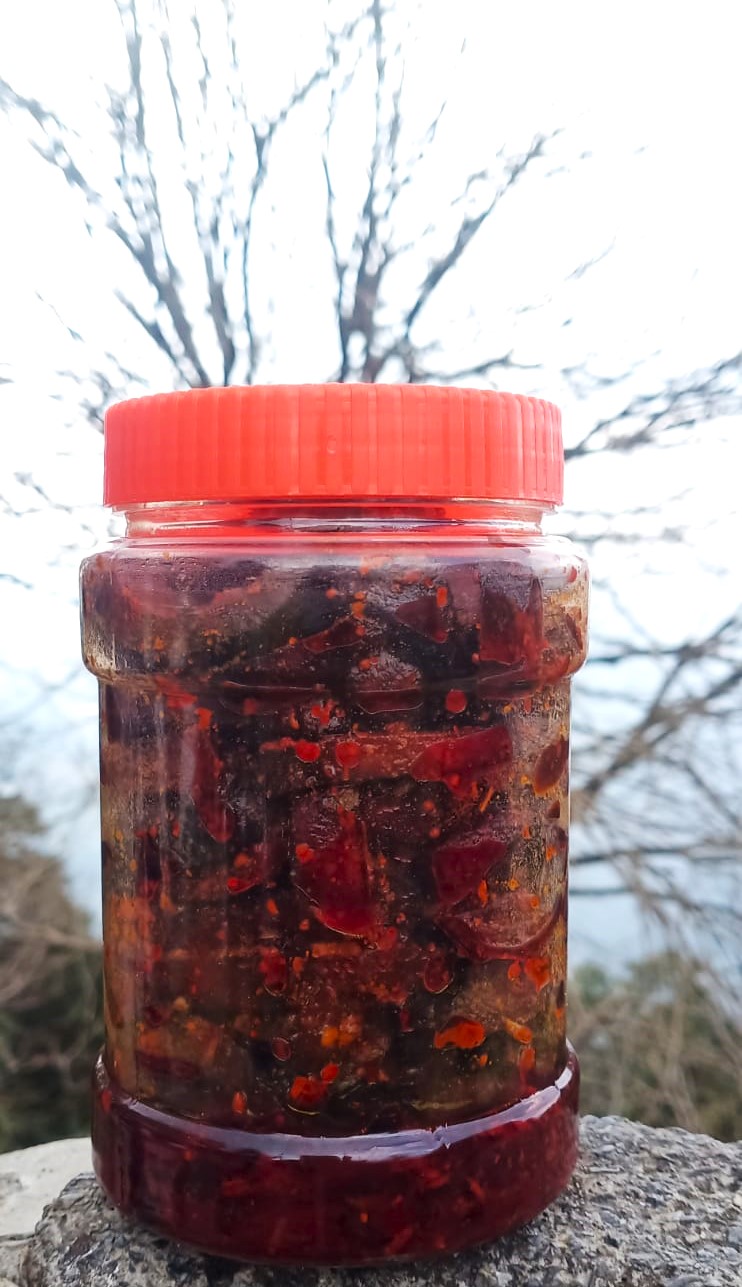
Introduction: The Powerhouse of Nutrition – Beetroot
Beets, with their vibrant red hue and earthy taste, have been a staple in global cuisines for centuries. But beyond their culinary appeal, these root vegetables are making waves in the health community. Packed with essential nutrients and boasting a plethora of health benefits, beets are truly a superfood. In this guide, we’ll delve deep into the myriad benefits of this vibrant root vegetable and why it deserves a spot on your plate.
1. Cardiovascular Wellness: Beets & Heart Health
- Natural Blood Pressure Regulator: Beets are rich in dietary nitrates, which the body converts into nitric oxide. This compound helps dilate and relax blood vessels, promoting smoother blood flow. As a result, there’s a significant reduction in blood pressure, ensuring your heart functions optimally.
- Cholesterol Management: The fiber in beets helps in reducing the levels of LDL (bad cholesterol), further promoting heart health.
- Antioxidant Boost: Beets contain a unique group of antioxidants called betalains. These compounds have been linked to reducing oxidative stress, a key factor in heart disease.
Tip: Incorporate beet juice into your morning routine or add roasted beets to your salads to tap into these cardiovascular benefits. Discover more about the intricate relationship between beetroot and heart health.
2. Digestive Aid: The Fiber-Rich Beetroot
- Promotes Healthy Digestion: Beets are a good source of dietary fiber, which aids in promoting smooth digestion. Regular consumption can prevent constipation, ensuring a healthy gut and overall well-being.
- Detoxification: The betalains in beets support phase 2 detoxification, helping the body eliminate toxins and potentially harmful substances.
- Gut Health: The fiber in beets acts as a prebiotic, feeding the beneficial bacteria in the gut. This can lead to improved gut flora balance and overall digestive health.
Tip: Beetroot salads, soups, or even beetroot chips can be delicious ways to incorporate this root vegetable into your diet and support your digestive system.
3. Detoxification Champion: Beetroot for Liver Health
- Natural Liver Support: Beets contain compounds like betaine and betalains, which play a crucial role in supporting liver detoxification. This helps in flushing out toxins, ensuring a healthier liver.
- Protection Against Liver Disease: The antioxidants in beets help reduce inflammation and oxidative stress in the liver, potentially protecting against liver diseases.
- Boosts Liver Function: The nutrients in beets support the liver’s natural detoxification processes, helping it function at its best.
Tip: Beetroot juice with a hint of lemon can be a refreshing drink that not only quenches your thirst but also supports your liver. Learn more about the connection between beetroot, liver, and kidney health.
4. Enhanced Blood Circulation: The Nitrate Boost
- Improved Oxygen Flow: The nitrates in beets, when converted to nitric oxide, promote better blood circulation. This not only ensures better oxygen distribution throughout the body but also supports overall cellular function.
- Supports Brain Health: Enhanced blood flow also benefits the brain, improving cognitive functions and potentially reducing the risk of age-related cognitive decline.
- Boosts Physical Performance: Improved circulation can enhance physical performance, reduce fatigue, and speed up recovery post-exercise.
Tip: Athletes often consume beet juice before their training sessions to tap into its performance-enhancing benefits.
This detailed exploration into the benefits of beets showcases their versatility and importance in a balanced diet. Whether consumed raw, cooked, juiced, or pickled, beets offer a wealth of health benefits that can cater to various health needs.
5. Immunity Booster: Beets and Overall Health
- Rich in Vitamins and Minerals: Beets are a treasure trove of essential nutrients, including vitamin C, folate, manganese, and potassium. These nutrients play a pivotal role in bolstering the immune system and ensuring the body’s defenses are up and running.
- Anti-inflammatory Properties: Chronic inflammation can lead to several health issues. The betalains in beets possess potent anti-inflammatory properties, helping to combat inflammation at its root.
- Antioxidant Powerhouse: The unique mix of antioxidants in beets helps neutralize free radicals, potentially reducing the risk of chronic diseases.
Tip: A beetroot smoothie blended with other immune-boosting ingredients like ginger and turmeric can be a delicious way to fortify your immune system.
6. Weight Management: Beets for a Balanced Diet
- Low in Calories, High in Nutrients: Beets offer a nutrient-dense profile with relatively low calories, making them an excellent choice for those looking to manage their weight.
- Dietary Fiber for Satiety: The fiber content in beets can help you feel full and satisfied, reducing the chances of overeating.
- Supports Metabolism: The array of vitamins and minerals in beets, especially B-vitamins, play a role in energy production and metabolism.
Tip: Incorporate beets into your salads or snacks. Their natural sweetness can also curb sugar cravings. Discover how beetroot can aid in weight loss.
7. Skin Health: The Radiance of Beets
- Natural Glow: The antioxidants and anti-inflammatory properties of beets can lead to healthier, glowing skin.
- Detoxifies Skin: By supporting liver function and overall detoxification, beets indirectly aid in clearing up the skin.
- Anti-aging Benefits: The vitamin C in beets aids collagen production, potentially reducing wrinkles and keeping the skin youthful.
Tip: Beetroot masks or beetroot-infused skincare products can be a natural way to harness its skin benefits.
8. Anemia Prevention: Iron-rich Beets
- Boosts Hemoglobin: Beets are a good source of iron and folate, both essential for the production of red blood cells.
- Enhances Iron Absorption: The vitamin C in beets can enhance the absorption of non-heme iron, aiding those with iron-deficiency anemia.
- Oxygen Transportation: With improved hemoglobin levels, oxygen transportation throughout the body becomes more efficient.
Tip: Pairing beets with vitamin C-rich foods like oranges can optimize iron absorption.
The versatility of beets, both in terms of culinary uses and health benefits, is truly remarkable. From supporting vital organs like the heart and liver to enhancing skin health and aiding weight management, beets are a must-add to everyone’s diet. Whether you’re looking to tap into the detoxifying benefits of beets or simply enjoy their earthy flavor, there’s no denying that this root vegetable is a nutritional powerhouse.
9. Beets for Brain Health: Boosting Cognitive Functions
- Improved Blood Flow to the Brain: The nitrates in beets, when converted to nitric oxide, can enhance blood flow to the brain, potentially supporting better cognitive functions.
- Protection Against Age-related Decline: The antioxidants in beets can combat oxidative stress, which is linked to neurodegenerative diseases like Alzheimer’s.
- Enhanced Neural Connections: Regular consumption of beets may support the health of brain neurons and enhance the connections between nerve cells.
Tip: Incorporate beetroot into your daily diet to potentially delay cognitive decline and support overall brain health.
10. Enhanced Athletic Performance: The Power of Beetroot Juice
- Boosts Stamina: Studies have shown that beetroot juice can enhance athletic performance by improving oxygen use, allowing athletes to exercise for longer periods without tiring.
- Muscle Recovery: The nitrates in beets can lead to better blood flow, aiding in faster muscle recovery post-exercise.
- Enhanced Energy Production: Beets contain compounds that can potentially increase the efficiency of mitochondria, the energy-producing units in cells.
Tip: Athletes and fitness enthusiasts can consider drinking beetroot juice before their workouts for an energy boost. Learn more about the power of beetroot and beet juice for athletic performance.
Incorporating Beets into Your Diet
Beets can be enjoyed in numerous ways, from raw salads to juices, soups, and even pickles. For those looking for a unique and flavorful addition to their meals, Himalayan Beetroot Pickle offers a delightful blend of taste and health benefits.
Beets, with their vibrant hue and earthy flavor, are not just a culinary delight but also a nutritional goldmine. Their wide range of health benefits makes them a valuable addition to any diet. Whether you’re aiming for a healthier heart, better digestion, or enhanced athletic performance, beets have got you covered. Dive deeper into the world of beets and discover their myriad benefits for overall well-being.
Frequently Asked Questions (FAQs)
- What makes beets a superfood?
Beets are considered a superfood due to their rich nutrient profile, including vitamins, minerals, antioxidants, and dietary fiber. They offer a range of health benefits, from supporting heart health to enhancing athletic performance. - How can I incorporate beets into my daily diet?
Beets are versatile and can be added to salads, soups, juices, or even consumed as pickles. For a unique flavor, consider trying the Himalayan Beetroot Pickle. - Are there any side effects of consuming beets regularly?
While beets are generally safe for most people, excessive consumption can lead to beet-colored urine or stools. It’s always best to consume them in moderation and consult with a healthcare professional if you have concerns. - Can beets help with weight management?
Yes, beets are low in calories and high in dietary fiber, making them an excellent choice for those looking to manage their weight. Their natural sweetness can also help curb sugar cravings. - How do beets benefit athletes and fitness enthusiasts?
Beets, especially beetroot juice, can enhance athletic performance by improving oxygen use, boosting stamina, and aiding faster muscle recovery. - Are pickled beets as nutritious as fresh beets?
While pickling can alter some of the nutritional content, pickled beets still retain many of the health benefits of fresh beets. However, it’s essential to be mindful of added sugars or salts in pickled products. - How do beets support brain health?
Beets can enhance blood flow to the brain, combat oxidative stress, and support the health of brain neurons, potentially delaying cognitive decline. - Are beets beneficial for bone health?
Absolutely! Beets are rich in essential minerals like calcium, magnesium, and phosphorus, which are crucial for maintaining bone strength and density.
Blog Tags: Beets, Superfood, Heart Health, Weight Management, Athletic Performance, Brain Health, Bone Health, Beetroot Juice, Dietary Fiber, Antioxidants, Immunity Booster, Digestive Health, Natural Remedies, Nutritional Benefits.










